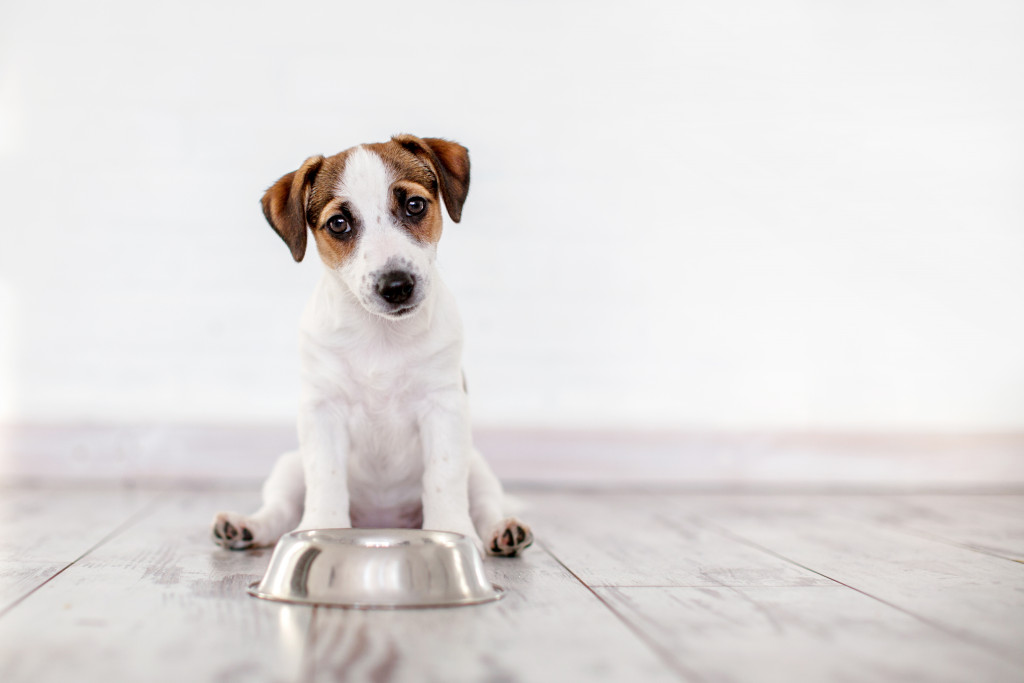There are plenty of reasons why a puppy might be picky with their food:
- They might be experiencing some anxiety. Think of human beings and how we get every time we’re emotionally overwhelmed: We lose our appetite. If your puppy is bored, lonely, or experiencing separation anxiety, that might be a reason why they don’t want to eat.
- You haven’t yet established a ritual that has conditioned your puppy when it’s time to eat and drink.
- Some puppies might need medical attention and are experiencing health problems. If you have already tried everything, and they still don’t seem to want to eat, then that might be a sign that it’s time to bring them to the vet.
Some puppies can be choosy with food for various reasons, but as the fur parent, you have the power to help change this behavior. Here are some essential pointers for getting your fur baby to eat what you’re giving them.
Consider Dog Training
If your puppy has other behavioral problems like pooping and peeing everywhere, they might benefit significantly from being dog-trained by a professional. As a pet owner, it would also be advantageous for you because you would be investing in your puppy’s long-term mental health and well-being without you having to learn how to do it yourself. Here are some things your puppy can learn while in training, aside from eating what you give them:
- Name recognition
- Basic obedience
- Crate training
- Leash obedience
When your puppy learns basic manners and obedience, they are more likely to comply with the schedule, habits, and rituals you set for them. It’s a win-win for both you and your fur baby.
Give Them Healthy Food
Here are some basic facts you need to know about the types of healthy food you can give your puppy:
- Canines are not just carnivores. It would also be beneficial for them to consume nutrients from fruits, grains, and vegetables.
- Don’t feed them just to feed them. Think of food as a tool for their health and not their reward for being good. Make sure they are consuming nutritional food as well—opt for commercial dog food brands that were specifically developed and formulated with the minimum dietary requirements for your puppy’s age. Remember that there are life stages in their food as well, so take note of your puppy’s age as you choose ready-made food for them.
Employ Tactics to Change Their Behavior

Employ strategies that will not just get your puppy to eat now, but ones that will change their behavior for good and for the better. Here are some ways you can help change their behavior for the long term:
- Teach them that they have no other choice. You can do this by giving them a whole dish, and if after thirty minutes they have not touched it, remove the dish until their next mealtime. It’s not necessarily harmful to your dog to miss one meal a day, and it will teach them that no other options exist.
- If they finally eat whatever’s inf front of them, remove the dish after thirty minutes anyway. It will condition them that their ration will not always be available to them, so they will be more likely to eat as soon as you set the food down in front of them.
- After a day or two of them eating properly, start introducing treats. But only give them treats when they’ve developed the habit of eating their food properly! Don’t give in, no matter how adorable they are. They don’t need treats when they’re not hungry.
Mind the Transition
As your puppy grows, remember that their food will have to change as well. The following are some tactics you can use so that they will look at the new food you introduce to them as time goes by:
- Do it gradually and steadily. If you combine the old food that they love with the new food, they will be more likely to give the new food a chance. As time goes on, remove the old food until only the new food is left.
- If it’s time to transition from wet food to dry food, add a small amount of warm water to the dry food. This way, they won’t be overly shocked by the new texture.
Puppies, like babies, can also come with plenty of growing pains—one of those being picky with the food they eat. Consider these strategies so that your fur baby will grow as strong and healthy as possible with a balanced and healthy diet.


